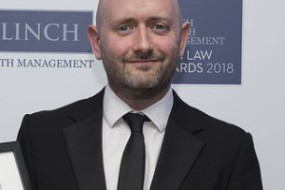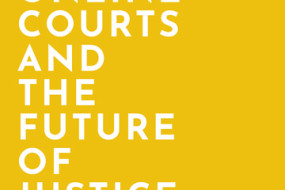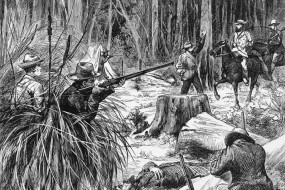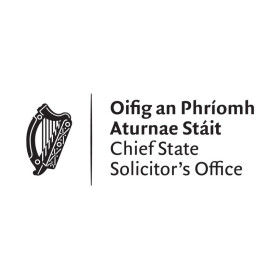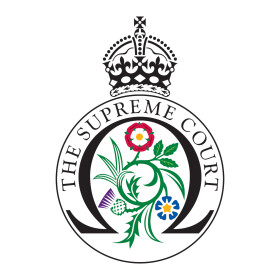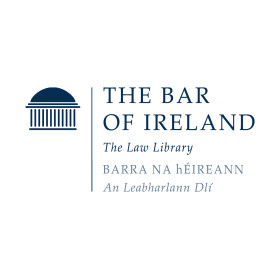Employment law solicitor Richard Grogan of Richard Grogan & Associates examines the law on protected disclosures. The issue of what a protected disclosure is arose in case ADJ-00023777. The Adjudication Officer in this case helpfully set this out, namely the issues set out in section 5 of the Pr
Opinion
Ronan Daly Jermyn partner Jennifer Cashman and solicitor Alan Devaney consider whether a recent UK employment equality decision recognising ethical veganism as a belief protected by law could be replicated in Ireland. An employment tribunal in the UK found, in the case of Casamitjana v League Agains
Mason Hayes & Curran partner Deirdre Munnelly and associate Aisling Pierce examine a recent judgment criticising lawyers who refer their clients for specialist medical evaluation in the absence of a referral from the client’s primary treating doctor. On appeal to the High Court, two person
Jason O'Sullivan, solicitor and public affairs consultant at J.O.S Solicitors, comments on the tax on food supplements introduced in Ireland this month. The current bed shortage crisis escalating daily throughout Irish hospitals is unprecedented and unlikely to abate any time soon, despite questiona
Employment law solicitor Richard Grogan of Richard Grogan & Associates examines a recent Spanish court ruling on gig economy workers. On the 27th November, the High Court of Justice in Spain ruled that riders of Glovo, who are a competitor of Deliveroo, are employees and are therefore not self-e
Rose Wall, chief executive of Community Law & Mediation (CLM), examines the impact of the Housing Bill currently under consideration by the Oireachtas. The declaration by the Dáil in May last year that Ireland is facing a “climate and biodiversity emergency” would suggest that
Dr Michael Wardlow, chief commissioner of the Equality Commission for Northern Ireland, considers the future of welfare in Northern Ireland. The election is now over and, once again, there’s an attempt this week to restore a working government at Stormont. It is also now two years since the Eq
Barrister Andrew McKeown critically examines the proposals put forward by legal tech expert Professor Richard Susskind OBE in his latest book. Online Courts and the Future of Justice is a fascinating read for lawyers and non-lawyers alike. It is clear that Professor Susskind is sincerely interested
Arthur Cox partner Aaron Boyle and associate solicitor Sinéad Flanagan examine a complex area of the law on public procurement. If a public authority wishes to enter into a land development transaction, is it required to tender the contract under public procurement rules? That depends.
William Fry associate Patrick Murphy and trainee Leeane Grace consider the impact of a recent European court ruling on sports. On 15 November 2019, the Court of Arbitration for Sport (CAS) hosted a live broadcast of the hearing of Sun Yang, a Chinese swimmer who was accused of refusing or failing to
Dr Rob Hendry, medical director of the Medical Protection Society (MPS), sets out the medical profession's perspective on Mr Justice Charles Meenan's expert group on tort reform and the management of clinical negligence claims. In 2018 the State Claims Agency paid out nearly €270 million i
Employment law solicitor Richard Grogan of Richard Grogan & Associates looks at the law surrounding bonus payments as the end of the year looms. The issue of bonus payments regularly arises particularly where an employee is leaving close to or at the time of the payment of a bonus.
Graham Pierce, partner and head of commercial property at Worthingtons Solicitors in Belfast, examines the law on signage in Northern Ireland. A tenant of commercial premises will normally expect to display signs at or near his premises indicating the name and nature of his business and any promotio
Edward “Ned” Kelly was a famous Irish-Australian bushranger and outlaw who was executed in November 1880. Part I and Part II of this series were published last month. After the Fitzpatrick affair, Ned and Dan were in hiding along with Joe Byrne and Steve Hart.
Paul Bradfield, former prosecution lawyer at the International Criminal Court, considers the future of the court. The International Criminal Court is at a crossroads. It seeks a new chief prosecutor to succeed the incumbent, Fatou Bensouda. For her successor, huge challenges – both legal and p








